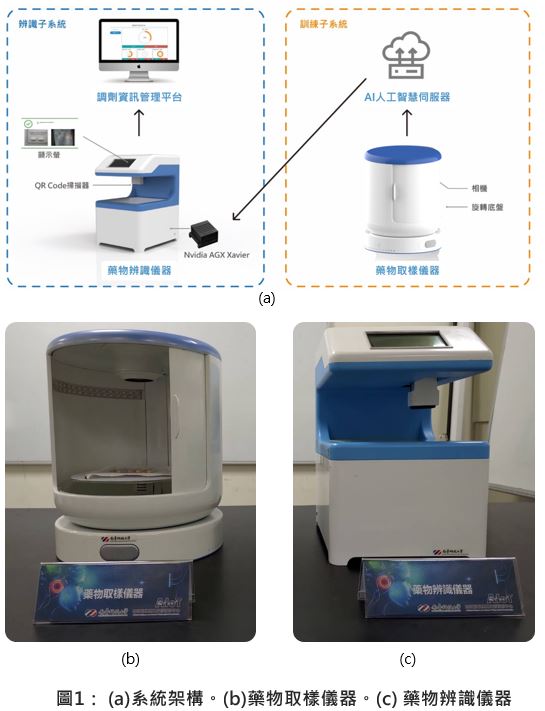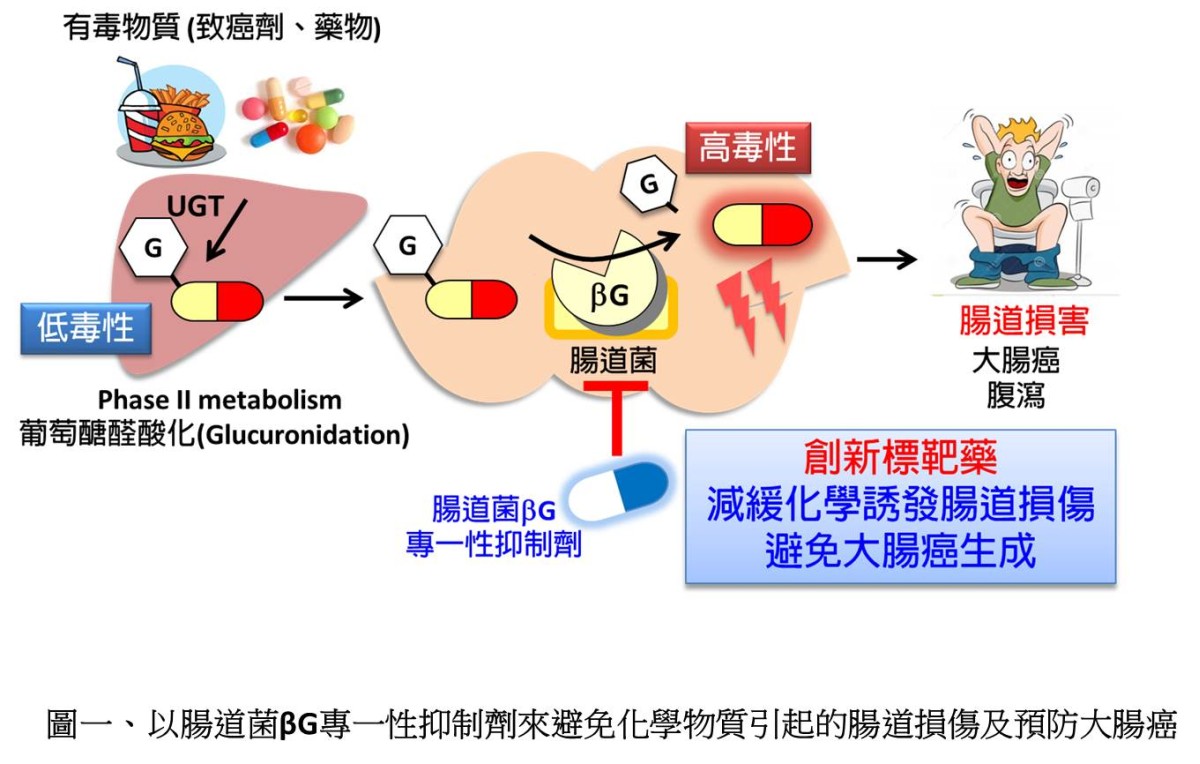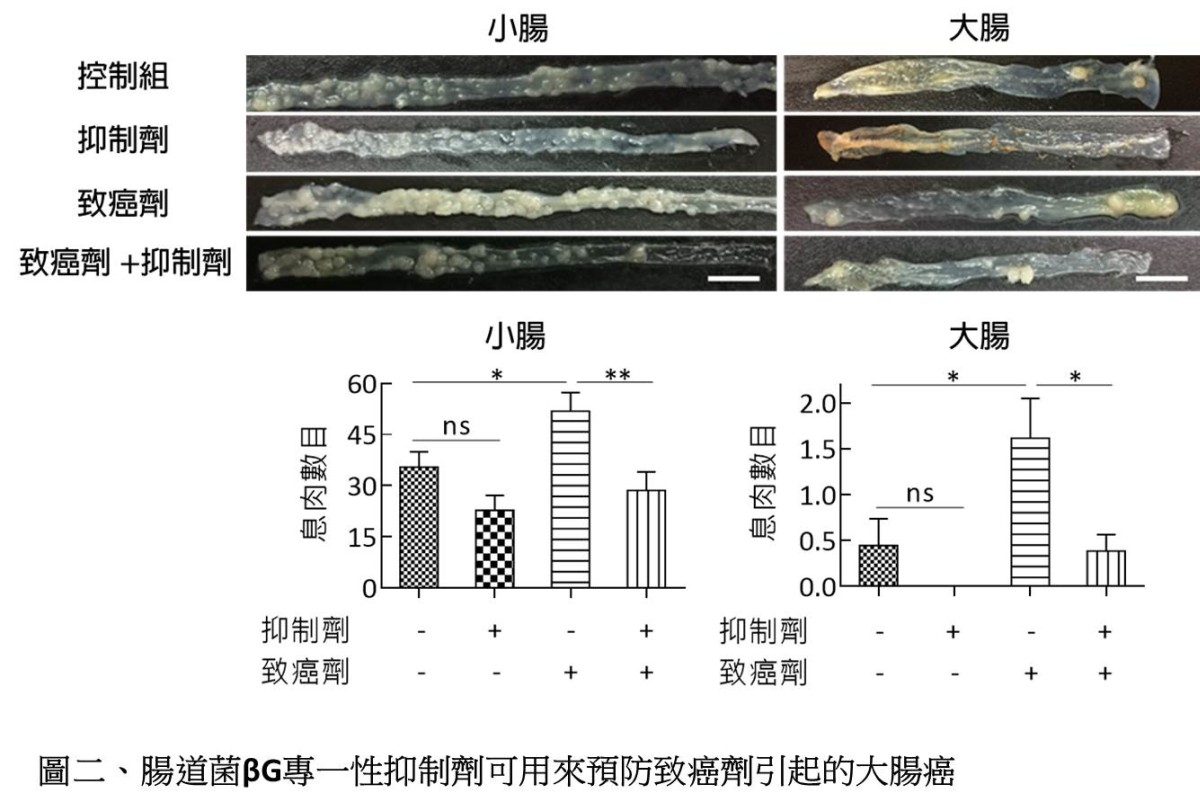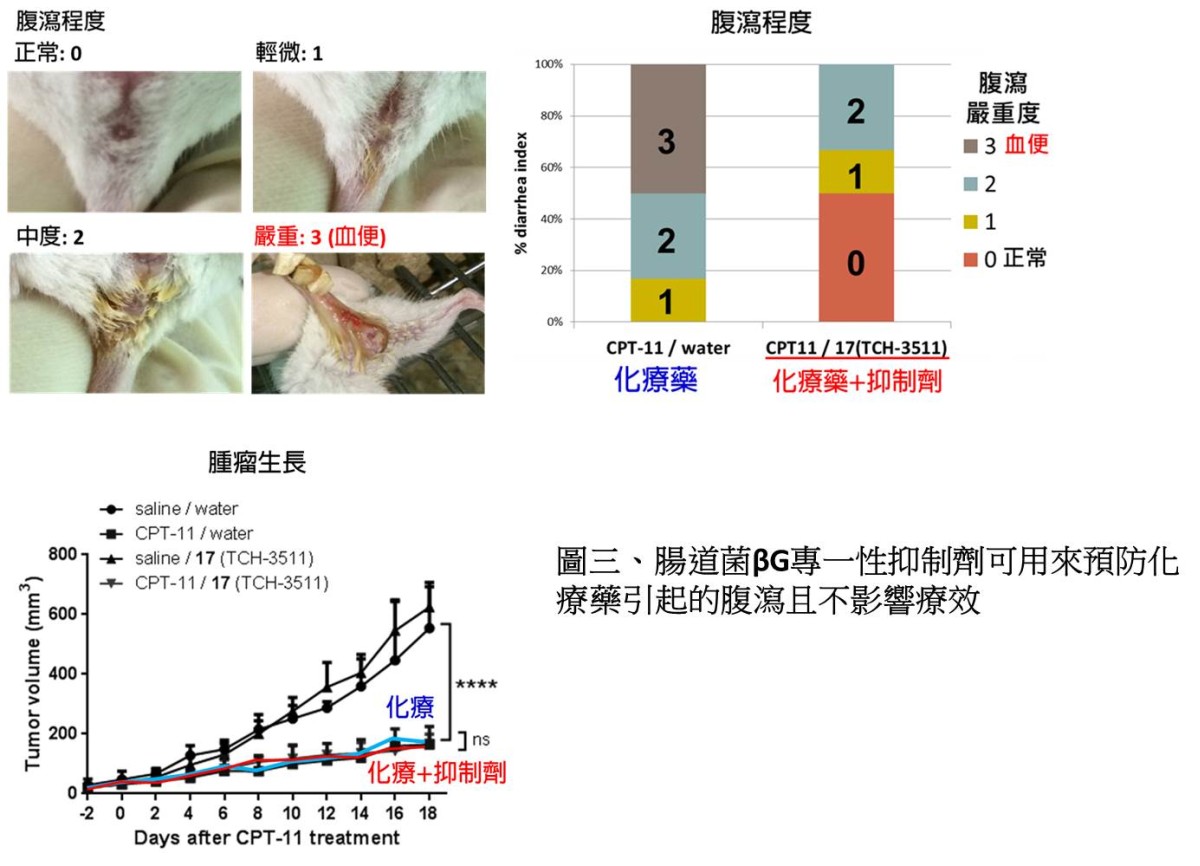| Technical Name | An novel drug for preventing chemical-induced intestinal damage and colorectal cancer | ||
|---|---|---|---|
| Project Operator | Kaohsiung medical university | ||
| Summary | Chemotherapy drugs or toxic chemicals which are detoxified through hepatic glucuronidaiton can be reactivated by eG back to toxic form and thus inducing intestine damage, diarrhea, carcinogenesis, and colon cancer. Therefore, we have successfully developed eG specific inhibitor as a novel drug for chemo-induced damage and colorectal cancer. |
||
| Scientific Breakthrough | Glucuronidation is a major process for toxin detoxification occurring mainly in the liver. Generally, carcinogens or drugs are conjugated with glucuronic acid to be inactive and facilitate their subsequent elimination from the body. However, when the pharmacologically inactive glucuronides enter the intestine via bile through enterohepatic circulation, they are reactivated by bacterial -glucuronidase (G), releasing the cytotoxic drugs and thus leading to intestinal injury. Repeatedly direct exposure of epithelium to carcinogens in the intestine leads to gene mutation and cell damage that increases the risk for colorectal malignancies. Therefore, we developed bacterial G-specific inhibitor as a novel drug for the following use: |
||
| Industrial Applicability | 本腸道菌eG專一性抑制劑可阻止肝解毒之藥物或致癌劑於腸道再度活化,造成腸道刺激、損傷最後形成大腸癌。並可應用於: |
||
other people also saw







